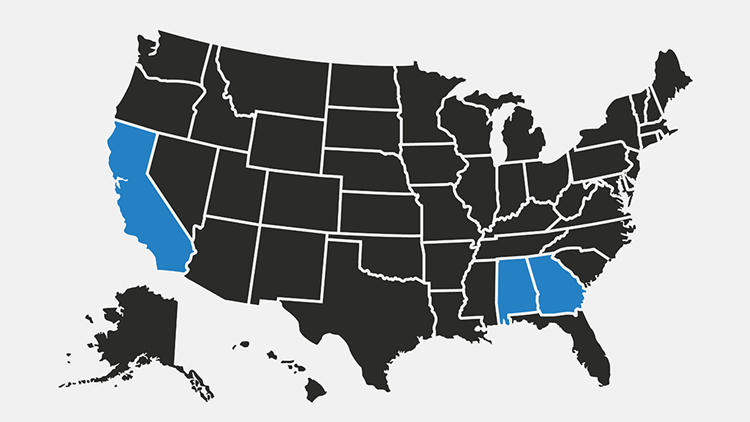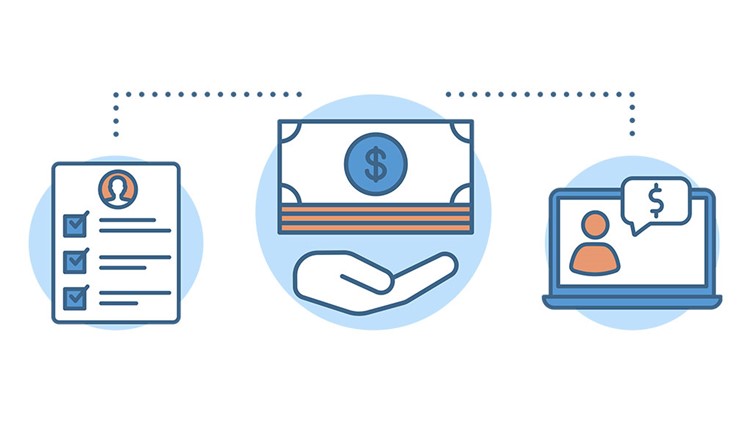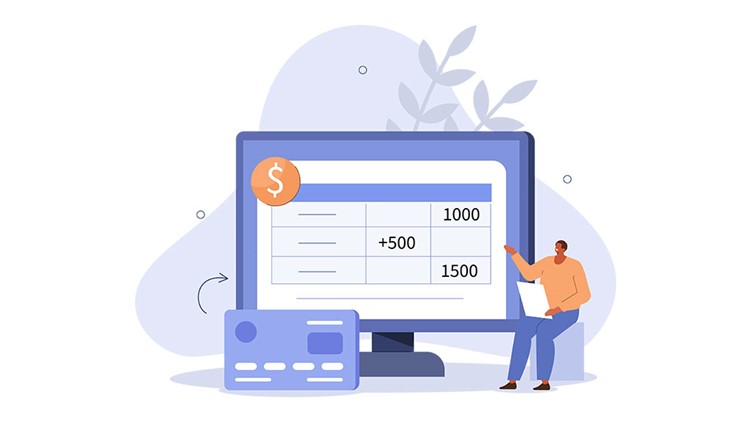by | Mar 22, 2023 | Tax Tips and News
New technology could improve tax return processing time at the IRS
Paper returns have historically been slower to process due to the Internal Revenue Service having to manually transcribe information, leading taxpayers who want to more quickly receive their refund to electronically file. However, there could be a light at the end of the tunnel for those who either prefer or are required to file paper returns.
This year, the IRS launched the Digital Intake scanning initiative as part of its push to improve the service it provides to everyone, from taxpayers and businesses to members of the tax industry. As part of the initiative, the agency is deploying new scanning technology to more quickly convert scanned paper tax returns into digital files.

“The IRS has been using various technologies to scan tax returns for more than 35 years but recently took a leap forward by leveraging cutting-edge technologies via a revolutionary procurement approach to test their effectiveness,” the IRS explains. “The capabilities enable the IRS to digitalize more paper for downstream processing and storage, resulting in greater efficiencies and improved data management outcomes.”
Currently, the initiative involves Lockbox Financial Agent banks and contracted industry partners.
How is the Digital Intake initiative going?
The IRS says they have already scanned more than 120,000 Forms 940 since the year began: roughly twenty times more than all the documents scanned last year. As a result, they have also earmarked Forms 1040 and 941 for the initiative.
This early inclusion of individual income and employer quarterly tax forms could signal that the program will be successful. Ultimately, the shift to efficient, accurate digital conversion tools would facilitate electronic processing and storage for paper filings, reducing turnaround time for these returns.
IRS Chief Information Officer Nancy Sieger shared her optimism about the program: “technology powers tax administration, and we have completed important work over the last year to help people get the assistance they need and reduce paper, in addition to improving the agency’s underlying technology infrastructure. This is another positive step in the future technology direction for the IRS that includes improving service to taxpayers.”
Source: IR-2023-41
– Story provided by TaxingSubjects.com
by | Mar 15, 2023 | Tax Tips and News
Taxpayers with foreign bank accounts who forgot to file an annual Report of Foreign Bank and Financial Accounts (FBAR) received some good news at the end of February. In Bittner v. United States, the Supreme Court ruled that the penalty for nonwillful failure to file an FBAR should be assessed on a per-report basis—capping fines at $10,000 per year, regardless of the number of accounts.

Which foreign accounts should taxpayers include in FBAR?
The Bank Secrecy Act (BSA) requires that taxpayers report foreign accounts in which they hold a financial interest, including:
One type of financial account is conspicuous by its absence: FBAR does not currently apply to accounts exclusively holding virtual currency. However, the Financial Crimes Enforcement Network (FinCEN) has already announced its intention to propose regulations that would “include virtual currency as a type of reportable account under 31 CFR 1010.350” (FinCEN Notice 2020-2).
Why did SCOTUS issue this ruling?
The majority opinion argues that the government’s per-account method for calculating nonwillful FBAR fines is not supported by statute, Treasury guidance, or Congressional statement of purpose (5-9, 11). They note that these examples actually serve as evidence for determining nonwillful fines on a per-report basis, including the following:
- “Section 5314 provides that the Secretary of the Treasury ‘shall’ require certain persons to ‘keep records, file reports, or keep records and file reports’ when they ‘mak[e] a transaction or maintai[n] a relation’ with a ‘foreign financial agency’”
- “Section 5321 authorizes the Secretary to impose a civil penalty of up to $10,000 for ‘any violation’ of Section 5314”
- “In 2010, the Department of the Treasury issued a notice of proposed rulemaking warning that, under its proposed rules, ‘[a] person who is required to file an FBAR and fails to properly file may be subject to a civil penalty not to exceed $10,000’”
- “Instructions included with the FBAR form have cautioned that ‘[a] person who is required to file an FBAR and fails to properly file may be subject to a civil penalty not to exceed $10,000’”
- “Congress has declared that the BSA’s ‘purpose’ is ‘to require’ certain ‘reports’ or ‘records’ that may assist the government in everything from criminal and tax to intelligence and counterintelligence investigations”
Since there is no mention of per-account fines for nonwillful violations—and many government documents instead seemingly indicate per-report fines—SCOTUS ultimately sided with Bittner, reaffirming that penalties should be clearly stated in “language that the common world will understand” (15).
How can I learn more about FBAR?
We offer a new course on DrakeCPE.com dedicated to teaching paid tax return preparers about reporting foreign financial accounts. After completing Reporting Foreign Financial Accounts: FinCEN and FBAR, you will know what led to the creation of FBAR and how to meet relevant preparation and filing guidelines.
Source: “Bank Secrecy Act,” IRS.gov; Bittner v. United States, No. 21-1195 (2023); FinCEN Notice 2020-2
– Story provided by TaxingSubjects.com
by | Mar 11, 2023 | Tax Tips and News
The Internal Revenue Service recently extended tax relief for disaster victims in Alabama, California, and Georgia. Individuals and businesses in these federally declared disaster areas now have until October 16, 2023, to meet several filing and payment deadlines.

Which filing and payment deadlines are extended by this tax relief?
The tax relief provided to disaster victims in Alabama, California, and Georgia affects a number of deadlines, including:
- January 17: fourth quarter 2022 estimated tax payments
- January 31: quarterly payroll and excise tax returns
- March 1: farmer returns for those who forgo estimated tax payments
- March 15: various business returns
- April 18: individual income tax returns
- April 18: various business returns
- April 18: estimated tax payments
- April 30: quarterly payroll and excise tax returns
- May 15: tax-exempt organization returns
- June 15: estimated tax payments
- July 31: quarterly payroll and excise tax returns
- September 15: estimated tax payments
Additionally, uninsured and unreimbursed losses resulting from these disasters can be “[claimed] on either the return for the year the loss occurred or the return for the prior year.”
Can anyone else qualify for this tax relief?
Taxpayers living outside disaster areas can also receive this tax relief if they meet specific requirements, like storing deadline-relevant records or serving as relief workers for a “recognized government or philanthropic organization” in those locations. The IRS directs these individuals to call 866-562-5227 to learn more about potentially qualifying.
Where can I learn more about this tax relief?
The following resources contain more information about affected deadlines and claiming uninsured or unreimbursed losses, respectively:
If you’re interested in earning CPE while learning to serve clients affected by a disaster, check out our new Federally Declared Disasters course on DrakeCPE.com. This course will teach you to determine filer eligibility, identify casualty losses, and prove, figure, and report gains and losses.
Source: IR-2023-33
– Story provided by TaxingSubjects.com
by | Mar 10, 2023 | Tax Tips and News
Taxpayers with foreign bank accounts who forgot to file an annual Report of Foreign Bank and Financial Accounts (FBAR) received some good news at the end of February. In Bittner v. United States, the Supreme Court held that the penalty for nonwillful failure to file an FBAR should be assessed on a per-report basis—capping fines at $10,000 per year, regardless of the number of accounts.

Which foreign accounts should taxpayers include in FBAR?
The Bank Secrecy Act (BSA) requires that taxpayers report foreign accounts in which they hold a financial interest, including:
One type of financial account is conspicuous by its absence: FBAR does not currently apply to accounts exclusively holding virtual currency. However, the Financial Crimes Enforcement Network (FinCEN) has already announced its intention to propose regulations that would “include virtual currency as a type of reportable account under 31 CFR 1010.350” (FinCEN Notice 2020-2).
Why did SCOTUS issue this ruling?
The majority opinion argues that the government’s per-account method for calculating nonwillful FBAR fines is not supported by statute, Treasury guidance, or Congressional statement of purpose (5-9, 11). They note that these examples actually serve as evidence for determining nonwillful fines on a per-report basis, including the following:
- “Section 5314 provides that the Secretary of the Treasury ‘shall’ require certain persons to ‘keep records, file reports, or keep records and file reports’ when they ‘mak[e] a transaction or maintai[n] a relation’ with a ‘foreign financial agency’”
- “Section 5321 authorizes the Secretary to impose a civil penalty of up to $10,000 for ‘any violation’ of Section 5314”
- “In 2010, the Department of the Treasury issued a notice of proposed rulemaking warning that, under its proposed rules, ‘[a] person who is required to file an FBAR and fails to properly file may be subject to a civil penalty not to exceed $10,000’”
- “Instructions included with the FBAR form have cautioned that ‘[a] person who is required to file an FBAR and fails to properly file may be subject to a civil penalty not to exceed $10,000’”
- “Congress has declared that the BSA’s ‘purpose’ is ‘to require’ certain ‘reports’ or ‘records’ that may assist the government in everything from criminal and tax to intelligence and counterintelligence investigations”
Since there is no mention of per-account fines for nonwillful violations—and many government documents instead indicate per-report fines—the Court ultimately sided with Bittner, reaffirming that penalties should be clearly stated in “language that the common world will understand” (15).
How can I learn more about FBAR?
We offer a new course on DrakeCPE.com dedicated to teaching paid tax return preparers about reporting foreign financial accounts. After completing Reporting Foreign Financial Accounts: FinCEN and FBAR, you will know what led to the creation of FBAR and how to meet relevant preparation and filing guidelines.
Source: Bittner v. United States, No. 21-1195 (2023)
– Story provided by TaxingSubjects.com
by | Feb 21, 2023 | Tax Tips and News
Filing an amended return used to mean completing a paper form, regardless of how taxpayers submitted the original return to the Internal Revenue Service. During the pandemic, paper-filed returns presented processing challenges that contributed to a historic backlog at the Internal Revenue Service.
Nearly two years after the IRS first began allowing electronic filing for Forms 1040-X, there is more good news for the roughly 3 million taxpayers expected to amend this year. Last week, the IRS announced that direct deposit is now available for refunds issued to taxpayers who file an amended return.
Why is the IRS now able to offer direct deposit for amended returns?
The IRS says recent system updates made the implementation of direct deposit for amended tax returns possible. This development represents the agency’s continued push to improve customer service, an effort ultimately bolstered by increased funding from legislation like the Inflation Reduction Act.
“Those filing amended returns can now enjoy the same speed and security of direct deposit as those filing an original Form 1040 tax return,” the IRS explains. “Taxpayers filing an original tax return using tax preparation software can file an electronic Form 1040-X if the software manufacturer offers that service.”
Will electronic filing and direct deposit help the IRS process amended returns faster?
The short answer is “no.”
The IRS is required to manually process all amended returns, which takes an average of 20 weeks, irrespective of the chosen filing method. However, the IRS says choosing e-file and direct deposit “cuts out the mail time” and “provides a convenient and secure way to receive refunds faster.”
Can I electronically file amended returns with Drake Tax®?
Drake Software customers do not have to wait for a program update to provide direct-deposit services to clients filing Forms 1040-X. Drake Tax has supported direct deposit for amended returns since the IRS announced its availability.

Source: IR-2023-22
– Story provided by TaxingSubjects.com
by | Feb 18, 2023 | Tax Tips and News
In 2022, millions of Americans received special state-issued payments designed to provide economic relief to residents struggling with financial burdens exacerbated by issues ranging from the pandemic to natural disasters. One week after urging recipients to postpone filing their returns, the Internal Revenue Service has issued official guidance regarding the federal taxability of those payments.
Last Friday, the IRS clarified that one-time state payments that address general welfare or disaster relief would not be considered federally taxable. While some of these payments will automatically benefit from the agency declining to challenge their taxability, others must meet additional criteria to qualify.
Why did the IRS decide these payments were not federally taxable?
The IRS says a number of factors influenced their decision, including the start of filing season and the one-time nature of the payments. According to the agency, this decision ultimately serves “the interest of sound tax administration.”
Which special state payments are affected?
The following special state payments issued in 2022 will not be considered federally taxable, according to the State Payments page on IRS.gov:
The IRS says this treatment will only apply in Georgia, Massachusetts, South Carolina, and Virginia if recipients claimed the standard deduction or received no tax benefit when itemizing.
There could be some confusion in California
In January, the California Franchise Tax Board issued federal Forms 1099-MISC to taxpayers who received a Middle Class Tax Refund payment of $600 or more. While the MCTR is not considered taxable income at the state level, the board likely anticipated that the IRS would require taxpayers report these payments as federally taxable income.
Since many California taxpayers will likely have received these forms weeks ago, early filers may have incorrectly reported the payments as income. How the federal tax agency will handle those returns remains to be seen.
Source: IR-2023-23
– Story provided by TaxingSubjects.com











